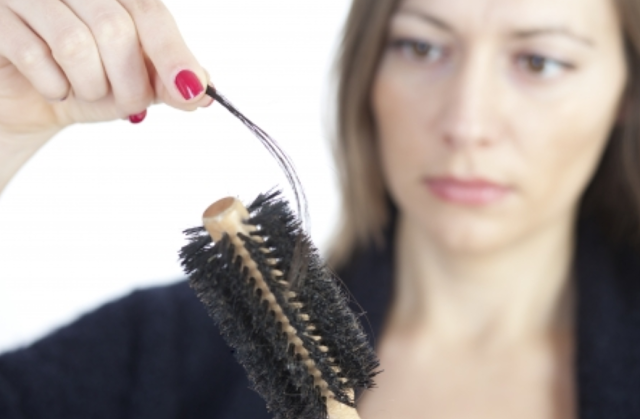Unlocking the Secret of Hair Loss in Women: Strategies for Treatment and Prevention
Unlocking the Secret of Hair Loss in Women: Strategies for Treatment and Prevention
Hair has long been a symbol of beauty, vitality, and self-expression. For women, especially, luscious locks are often associated with femininity and confidence. However, the reality is that many women struggle with hair loss, a concern that can deeply impact self-esteem and quality of life. In this comprehensive article, we will delve into the complex world of hair loss in women, exploring its underlying causes, available treatments, and the importance of regular care in maintaining a healthy and vibrant mane.
Understanding Hair Loss in Women
Unlike men, women typically experience diffuse hair thinning across the scalp rather than distinct bald spots or receding hairlines. This phenomenon is known as female pattern hair loss (FPHL) or androgenetic alopecia. It's essential to understand that hair loss in women doesn't always follow a straightforward pattern, making diagnosis and treatment more intricate.
The Intricate Causes of Hair Loss in Women
- Hormonal Fluctuations: Hormonal changes, such as those during pregnancy, childbirth, and menopause, can trigger hair loss. Conditions like polycystic ovary syndrome (PCOS) may also contribute due to elevated androgen levels.
- Genetic Predisposition: Genetic factors play a crucial role in determining a woman's susceptibility to hair loss. If your parents or grandparents experienced hair loss, you might be at a higher risk.
- Stress and Lifestyle: Modern lifestyles often entail high levels of stress, inadequate sleep, and unhealthy dietary habits. These factors can disrupt the hair growth cycle, leading to increased hair shedding.
- Medical Conditions: Medical conditions like thyroid disorders and autoimmune diseases (such as alopecia areata) can have a direct impact on hair health.
- Nutritional Imbalances: Poor nutrition, especially deficiencies in iron, vitamins (especially B vitamins), and proteins, can weaken hair follicles and contribute to hair loss.
Navigating Treatments for Hair Loss in Women
- Topical Minoxidil: Minoxidil, available over the counter, is a topical solution that enhances blood flow to hair follicles, stimulating growth.
- Prescription Medications: Prescription options include spironolactone and finasteride, which target hormonal imbalances to combat hair loss.
- Low-Level Laser Therapy (LLLT): Devices like laser combs and helmets utilize LLLT to stimulate hair follicles through the emission of low-level light.
- Platelet-Rich Plasma (PRP) Therapy: PRP therapy involves injecting a concentrated solution of the patient's blood plasma into the scalp, stimulating follicle activity.
- Nourishing Hair Products: Hair growth shampoos and conditioners containing ingredients like ketoconazole, caffeine, and biotin can enhance hair health and growth.
- Embracing Lifestyle Changes: Managing stress through techniques like meditation and yoga, adopting a balanced diet rich in nutrients, and regular exercise can contribute to hair health.
The Power of Consistent Hair Care
- Gentle Hair Treatment: Avoid aggressive hair treatments, excessive heat styling, and tight hairstyles that strain hair follicles and lead to damage.
- Prioritize Scalp Health: Regular cleansing and exfoliation of the scalp eliminate debris, excess oil, and dead skin cells that can obstruct hair follicles.
- Nutritional Balance: A diet brimming with essential nutrients—vitamins, minerals, proteins, and antioxidants—nurtures hair health from within.
- Stay Hydrated: Drinking an adequate amount of water daily promotes hair hydration and overall well-being.
Seeking Expert Guidance
If hair loss is a significant concern, consulting a dermatologist or healthcare professional is crucial. They can accurately diagnose the underlying cause of hair loss, recommend suitable treatments, and help you establish a personalized hair care regimen.
Conclusion: Nurturing Hair Confidence
Hair loss in women is a multifaceted issue, but there are solutions to empower women to reclaim their hair confidence. By delving into the intricate causes of hair loss, embracing a range of treatments, and adopting a comprehensive approach to hair care, women can take charge of their hair health. Remember, each strand is a symbol of beauty, strength, and resilience—qualities that deserve to shine brightly for all women to embrace and celebrate.

















No comments